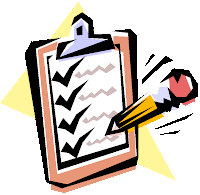1. Budweiser beer conditions the hair
2. Pam cooking spray will dry finger nail polish
3. Cool whip will condition your hair in 15 minutes
4. Mayonnaise will KILL LICE. It will also condition your hair
5. Elmer's Glue - paint on your face, allow it to dry, peel off andsee the dead skin and blackheads
6. Shiny Hair - use brewed Lipton Tea
7. Sunburn - empty a large jar of Nestea into your bath water
8. Minor burn - Colgate or Crest toothpaste
9. Burn your tongue? Put sugar On it!
10. Arthritis? Use WD-40 Spray and rub in; kills insect stings too
11. Bee stings – Use meat tenderizer or tape a penny to bee sting for 15 min.
12. Chigger bite - Preparation H
13. Puffy eyes - Preparation H
14. Paper cut - Crazy Glue or Chap Stick (Glue is used instead of sutures at most hospitals.)
15. Stinky feet - Jell-O!
16. Athletes feet - Cornstarch
17. Fungus on toenails or fingernails - Vicks vapor rub
18. Use Kool Aid to clean dishwasher pipes. Just put it in the detergentsection and run a cycle. It will also clean a toilet. (Wow, and wedrink this stuff)
19. Kool Aid can be used as a dye in paint. Also Kool Aid in Dannon Plain yogurt as a finger paint. Your kids will love it and it won'thurt them if they eat it!
20. Peanut butter will get scratches out of CD's! Wipe off with acoffee filter paper. Put a small amount of rubbing alcohol on a soft rag. Rub it on a CD, and it will also take the scratches out of a CD.
21. Sticking bicycle chain - Pam no-stick cooking spray
22. Pam will also remove paint, and grease from your hands! Keep acan in your garage for your hubby.
23. Peanut butter will remove ink from the face of dolls.
24. When the doll clothes are hard to put on, sprinkle with cornstarch and watch them slide on.
25. Heavy dandruff - Pour on the vinegar !
26. Body paint - Crisco mixed with food coloring. Heat the Crisco inthe microwave, pour in to an empty filmcontainer and mix with the foodcolor of your choice!
27. Tie Dye T-shirt - mix a solution of Kool Aid in a container, tie arubber band around a section of the T-shirt and soak
28. Preserving a newspaper clipping – Take large bottle of club soda andcup of milk of magnesia , soak for 20 min., and let dry. It will last formany years!
29. A Slinky will hold toast and CD's!
30. To keep goggles and glasses from fogging, coat with Colgatetoothpaste
31. For wine stains, pour on the Morton salt and watch it absorb into thesalt.
32. To remove wax - Take a paper towel and iron it over the wax stain.It will absorb into the towel.
33. To remove labels off glassware, etc,. rub with peanut butter !
34. Baked on food – Put a Bounce fabric softener sheet in the baked on food container,
fill the container with water, and soak overnight. The static from the Bounce sheet
will cause the baked on food to adhere to it. Also, you can put two Efferdent tablets and water in the container and soak overnight with the same results!
35. Crayon on the wall - Colgate Toothpaste and brush it!
36. Dirty grout – Use Listerine
37. Stains on clothes – Colgate
38. Grass stains - Karo Syrup
39. Grease Stains – Use Coca Cola., It will also remove grease stains fromthe driveway overnight. We know it will take corrosion from carbatteries!
40. Fleas in your carpet? 20 Mule Team Borax - Sprinkle and letstand for 24 hours.
41. To keep FRESH FLOWERS longer, add a little Clorox, or 2 Bayeraspirin , or just use 7-up instead of water.
Thursday, August 6, 2009
Tip Thursday
Labels: Tip Thursday
Thursday, November 1, 2007
Parenting Tips: Parenting Your Adult Children
As our children become adults our role as a parent changes. They no longer need us to keep them safe, to set boundaries, to provide for them financially, or to “kiss their boo-boos”.
Navigating the parent/adult child relationship can be treacherous if we forget our role or if they want to remain dependent. I had an adult child in my office a few years ago that was still living with mom and dad. She was complaining that her dad treated her like a child and was taking away privileges like her cell phone and car. I told her that at the age of 21 she should not tolerate that kind of behavior from anyone!! After all, she could go out and get a job, move out, purchase her own car and phone, and not have anyone tell her what to do!! For some reason she wasn’t too happy with me.
I have also had parents in my office who are still trying to figure out how to solve their adult children’s problems. One family came to me to help them figure out how to pay their son’s medical bills. It wouldn’t have been so obviously wrong if mom hadn’t been in her 80’s.
So, how do we parent and let go at the same time? Here are some suggestions for managing the transition from parent /child to parent/adult child relationship:
Don’t take responsibility for your adult children. We are responsible TO our children; to feed them, educate them, give them shelter, clothe them, etc. But we are not responsible FOR the decisions they make as adults.
Allow your adult children to suffer their own consequences. The principle is, if I rob a bank, you shouldn’t have to go to jail! Right?! Unfortunately, when it comes to our kids we sometimes feel responsible for their messes and try to fix them. Don’t bail them out of financial messes, don’t intervene in their relationship messes, don’t buy them out of trouble!
Separate love and acceptance from approval. Your kids may decide to do something that you find morally wrong or at least irritating. You can love your adult child without approving of their behavior. Our kids need to know that they are loved and accepted regardless of what they do.
Give advice ONLY when asked. I know this is a tough one! We have much more life experience than they do, and we love them so much we just want to save them the heartache of making the same mistakes we did. But think about it…how do you learn best? Most of us learn the hard way…I don’t drive the speed limit because I think it’s a great law! I drive the speed limit (most of the time) because I have had a few tickets in my life, and I really don’t want to pay the fine again!!
Don’t try to guilt-trip your adult children. Don’t try to make them feel bad if they don’t call as often as you would like. (By the way…the phone lines work both ways! If you want to talk to them, pick up the phone and call them!) Don’t try to guilt them into coming to your house for EVERY holiday. If they are married they will have to divide their time.
Let them parent their own children!! Check out this post to read more about your role as a grandparent.
Labels: Parenting, Parenting Tips, Tip Thursday
Wednesday, September 12, 2007
Parenting Tips: Respect
When did kids stop respecting their parents? I was at the store last week and saw a pre-teen swearing at her mom. She was angry about something (probably because her mom said no) and the language that came out of her mouth was unbelievable. But what was more unbelievable was that the mom took it. Oh, she told the girl to stop...but her words weren't even convincing to me. The girl just rolled her eyes (a sign of contempt) and continued berating her mother. I don't know about you, but if I had tried that when I was a pre-teen I wouldn't be alive to tell about it today. When I was a kid all parents had to do was give the "look" and we knew we were in big trouble!
As I contemplated that scene in the store this week I became increasingly aware of some of the commercials on TV that show parents (particularly dads) as bumbling idiots. Some recent examples are the Staples commercial with mom and dad dressed up as cheerleaders while the kids look on in disgust. Or the cell phone commercial where dad says that if all 5 members of the family can call 5 other people for free then they can call 26 people for free.
We may laugh when we see these commercials (some of them ARE pretty funny), but they are an indication of how things have changed in our society. Parents don't command respect...and the world tells kids that their parents aren't to be respected.
So, what's a parent to do? Respect is one of the most important things you can teach your children. But remember that respect is not the same as obedience. Kids often obey because they are afraid, but if they respect you, they will obey because they know you love them and want what's best for them.
According to dictionary.com respect is "to hold in esteem or honor." Respect is an attitude. Teaching a child to act respectfully will help that child succeed in life. However, if children don't have respect for peers, authority, or themselves, it will be almost impossible for them to succeed.
Unfortunately many times parents don't get respect from their kids because a) they don't show respect TO their kids, or their spouse, and b) they are trying to be a friend to their child instead of a parent. It is difficult for a child to learn respect when they don't see it, or when they don't feel it. And it is difficult for a child to give respect to someone who is trying to please instead of putting up the boundaries that all kids need in order to feel loved and cared for.
Here are some tips for teaching your children respect:
1. Be honest
2. Be polite
3. Be reliable
4. Obey the laws
5. Say you're sorry
6. Provide opportunities to practice
7. Model good behavior
8. Prompt children to be polite
9. Watch television together and discuss disrespectful behavior
10. Teach the golden rule
Labels: Parenting, Respect, Tip Thursday
Thursday, August 16, 2007
Grandparenting Tips
According to Hallmark.com:
• About 70 million grandparents live in the United States, according to estimates, and that number will continue to grow as baby boomers age.
• About 67 percent of Americans aged 45 and older are grandparents.
• The average age of first-time grandparents is about 48.
As a grandparent I have (hopefully) learned some tips for maintaining a successful relationship with the parents of my grandchildren.
1. Don't confuse your role. You are NOT the parent. You may need to say that to yourself over and over again if your adult children are not parenting the way you would!
2. Don't criticize your children's parenting. They will learn soon enough (the hard way...just like you learned) what works and what doesn't.
3. Don't contradict the parent's rules. You may not think it is a big deal to let the kids jump on your beds, but if your kids say they don't allow your grandchildren to jump on the beds...go back to rule #1...you are NOT the parent!
4. Don't interfere with your grandchildren's discipline...even if it breaks your heart.
5. When your adult children ask you not to do something (like giving candy before dinner), don't get upset. You already knew they wouldn't like it!
6. Don't give advice unless you are asked. Unsolicited advice is usually unwanted advice.
7. Don't assume that the way you used to parent is the best way. Times have changed...so don't say, "Well, in my day..."
Labels: Grandparents, Tip Thursday
Thursday, August 9, 2007
Parenting Tips: Bullies
Shannon at Rocks in my Dryer wrote a great post today about her son Adam and a bully at camp. Her husband did a great job in helping Adam handle a bad situation! Check it out here. What do you do when your child admits to being bullied?
As a counselor I often talk to parents who don't know how to help their children deal with the inevitable bullies at school or summer camp. It is so hard as a parent to know when to step in and when to let a child fend for themselves. Moms especially have a hard time because we get very protective when anyone threatens our "babies."
According to Wikipedia, Bullying is the intentional tormenting of others through verbal harassment, physical assault, or other more subtle methods of coercion such as manipulation. There is currently no legal definition of bullying.
In colloquial speech, bullying often describes a form of harassment perpetrated by an abuser who possesses more physical and/or social power and dominance than the victim. The victim of bullying is sometimes referred to as a target. The harassment can be verbal, physical and/or emotional.
How do you know when your child is being bullied?
They might:
- Listen
- Believe them
- Remind them that it is not their fault
- Encourage your child to talk about his/her feelings
- Tell your child that they did the right thing by telling
- Talk to the adults in charge (teacher, principle, counselor)
- Teach your child to stay with a group or a friend
- Encourage your child to “act brave” and look directly into the bully’s eyes and to hold their head high
- Teach them to ignore the bully when possible. Bullies feed on reactions
- Teach them to use their heads, not their fists
- Encourage your child to avoid the bully if possible
- Tell your child that they shouldn’t be ashamed to ask for help
How to Handle Bullies, Teasers and Other Meanies: A Book That Takes the Nuisance Out of Name Calling and Other Nonsense
How to Deal With Bullies
Blue Cheese Breath and Stinky Feet: How to Deal With Bullies
Labels: Parenting, Tip Thursday
Thursday, August 2, 2007
Memorable Milestones
What is a milestone? According to the American Heritage Dictionary, a milestone is:
- A stone marker set up on a roadside to indicate the distance in miles from a given point.
- An important event, as in a person's career, the history of a nation, or the advancement of knowledge in a field; a turning point.
First day of kindergarten: Take a picture of your child getting on the school bus. Plan a trip to their favorite fast food restaurant when they get home. Get balloons to welcome them home.
Losing a tooth: Get the book Throw Your Tooth on the Roof to show your child how other cultures celebrate losing a tooth.
Learning to swim: Get a child’s t-shirt and iron on a decal picture of a fish with the words “Look at me, I can swim!”
Riding a bike without training wheels: Take the family out for a bike ride and
 if possible ride to an ice cream shop for a cone to celebrate! Buy a new helmet or bike horn or mirror.
if possible ride to an ice cream shop for a cone to celebrate! Buy a new helmet or bike horn or mirror.First goal/home run/touchdown: Get a plastic tablecloth with a sports theme. Pick up some frosted cupcakes at the grocery store and decorate them with some plastic footballs/baseballs/soccer balls. Make a sign awarding your child the MVP of the day.
Making the honor roll: Have a family award ceremony at home or at a restaurant. Reward your child with a new CD, or video game.
Getting a driver’s license: If your child doesn’t already have a cell phone, this may be the time to get them one…for keeping in touch (remind them not to talk and drive!). Get them their own emergency kit filled with Safety Matches, Band aids, Antiseptic Wipes, Instructions to Change a Flat Tire, Instructions to Jump Start a Dead Battery, Emergency Contact List, Accident Record and a copy of their signed Parent Child Driving Agreement.
Getting a first job: Trade your child’s first paycheck for some cash and frame the paycheck (I’m sure it won’t amount to much!) Your child will be proud, and s/he will get a kick out of it as an adult! Help your child set up their first budget. Set up their own account on Quicken. Let them track their own spending and saving.
Labels: Parenting, Tip Thursday
Thursday, July 26, 2007
Disciplining Preschoolers
Discipline
- In the Bible in Proverbs13:24 it says, “He who spares the rod hates his son, but he who loves him is careful to discipline him.”
- We often interpret this verse as spanking, but in reality, the rod was a tool used by shepherds in Biblical times to direct the sheep in the way they should go. It was not a tool for punishment.
- Discipline is a word that has two meaning. One of the meanings is punishment and the other is to teach. The ideal discipline program for a child is one that teaches what behaviors are acceptable and what behaviors are not acceptable.
- Helps children learn to control their behavior so that they act according to their ideas of right and wrong, not because they fear punishment.
- For example…they are honest because they think it is wrong to be dishonest, not because they are afraid to get caught.
- This is our goal for our children…they don’t start out here.
- We have to be the ones who teach them right and wrong, and hold them accountable until they develop their own sense of right and wrong.
- Our job as a parent is to work ourselves out of a job.
- Preschool children are busy learning about the world around them
- They ask lots of questions
- They love to imitate adults
- They are learning to share and take turns
- They like to try new things and often take risks
- They may try to shock you at times by using “forbidden” words
- Getting attention is fun for a preschooler, being ignored is not
- Preschoolers like to make decisions for themselves
- They have lots of energy
- The psychological stage of a preschooler is autonomy vs. shame and doubt. They are figuring out that they are their own little selves and that they can say NO and MINE!
- They can get carried away by their “power” and get bossy.
- There is no one right way to discipline
- But there are things we can do to assure that our children grow up learning the difference between right and wrong!
- Set a good example!
- Preschoolers love to imitate adults!
- Watch your habits because your kids will be sure to copy them!
- If you want them to treat each other kindly, you have to demonstrate it
- Good eating habits, how much you watch TV, the language you use will all be caught rather than taught!
- Praising children encourages learning, independence, and strong self-esteem in children.
- Say things like, “You did a great job putting your clothes away,” or “This painting has beautiful colors!”
- Watch your language and focus on what to do rather than what not to do!
- Try saying:
- Slow down and walk instead of Stop running
- Come hold my hand instead of Don’t touch anything
- Keep your feet on the floor instead of Don’t climb on the couch
- Use your quiet voice inside instead of Stop screaming and shouting
- Sometimes when a child is doing something that you don’t want them to do you can distract them with something else or redirect them to something else.
- Try to ignore the behavior if the child isn't doing something that is harmful (or if it isn't something that you directly told them not to do).
- Withhold all attention and praise or support.
- This works when the child is trying to get attention by screaming or saying bad words.
- Sometimes you can tell the child that you can go into the other room and scream if you would like to, but not here.
Labels: Parenting, Tip Thursday
Thursday, July 19, 2007
Tip Thursday
 So, it is the middle of July...summer vacation is half over, and the kids are bored. What do you do? Get the family together with a decorative jar, strips of 1"x 3" paper, and your imaginations. Brainstorm together to create a family fun jar with activities that involve everyone in the family. Then, once a week draw a strip of paper from the jar and have some family fun.
So, it is the middle of July...summer vacation is half over, and the kids are bored. What do you do? Get the family together with a decorative jar, strips of 1"x 3" paper, and your imaginations. Brainstorm together to create a family fun jar with activities that involve everyone in the family. Then, once a week draw a strip of paper from the jar and have some family fun.
Here's a list of activities to get you started:
- Have a progressive dinner...with each course at a different fast food restaurant.
- Go out for ice cream
- Do a jigsaw puzzle together
- Trade places...have the kids be the parents for an evening
- Go miniature golfing
- Shovel the neighbors driveway together
- Bake and decorate cookies...and then take them to a local nursing home
- Plan a family picnic...in the back yard
- Catch fireflies
- Go to the airport to watch the planes land
- Make homemade ice cream
- Blow bubbles when the temperature dips below freezing (They freeze!)
- Have a Make Your Own Pizza night with English muffins and lots of toppings
- Camp out in the back yard
Labels: Parenting, Tip Thursday
Thursday, July 12, 2007
Six Characteristics Strong Families Share
- Commitment
- Expressions of Appreciation/Affection
- Share Positive Communication
- Spend Large Amounts of Time Together
- Nurture Spiritual Well Being
- Cope Successfully with Stress & Crisis
Commitment
· Dedication to the Marriage Relationship
· Commitment to Each Individual in the Family
· Commitment to Putting the Family First
· Commitment to Honesty
· Commitment to Family Traditions
· Commitment to the “Long Haul”
Expressions of Appreciation/Affection
· Need to be appreciated one of the most important human needs
· Gives each person dignity and worth (or takes away if withheld)
· Affection—Both verbal and physical
Share Positive Communication
· Spend large amounts of time talking with each other, creating a sense of belonging
· Positive communication allows for successful conflict resolution
Spend Large Amounts of Time Together
· Leads to good communication
· Prevents isolation, loneliness, and discourages alienation
· Provides a family identity
· Nurtures Relationships
Nurture Spiritual Well Being
· Celebrate religious traditions & rituals as a family
· Share religious heritage of the family
· Pray and meditate together as a family
· Study God’s Word together
Cope Successfully with Stress & Crisis
· Learns to keep things in perspective
· Lets go lets God
· Focuses on something bigger than self
· Has a sense of humor
· Takes one step at a time
Adapted from Family Treasures, Creating Strong Families, 2006
Labels: Parenting, Tip Thursday
Thursday, July 5, 2007
10 Communication Tips for Parents
1. Be interested in what your child has to say.
Turn off the TV and put down the newspaper. Kids can tell when you are not concentrating. Maintain eye contact, this lets your child know that you are really interested in what they have to say. If you truly do not have time at that moment, promise to get back to them later, but then do it!
2. Keep conversations brief.
The younger children are, the more difficult is for them to sit through a long speech. The goal is for parents to pass on information a little at a time while checking that their children are paying attention to and understanding what is being said at regular intervals. Parents should let children decide when enough is enough. Look for clues like fidgeting, lack of eye contact, distractibility.
3. Ask the right questions…avoid dead end questions.
Avoid asking questions that just require a yes or no answer. Ask questions that begin with what, where, who or how. But…don't let your questions turn into an interrogation!
4. Communicate at your children's level.
Come down to their level both verbally and physically. Use age appropriate language that the child can understand.
5. Express your own feelings and ideas.
Communication is a two way street. Parents can teach their children many things, for example, morals and values, by expressing thoughts and feelings. For example, watch TV together and engage the child in a conversation about why you believe what you are watching is wrong or immoral. Be careful, however, not to come off "preachy" or judgmental.
6. Regularly schedule family meetings or times to talk.
Use the dinner hour as time to catch up with each other. Or use quiet times before bed as a time to find out what the child has planned for the next day.
7. Admit it when you don't know something.
When a child asks a question you don't know the answer to, use it as a learning experience for both of you. We need to teach our children that the smartest people are not the ones who have all the answers (an impossibility), but the ones who know how to find the answers. Teach your children how to find out the answers to tough questions.
8. Try to make explanations complete.
When answering questions give as much information as the child needs, even if the subject is something that you don't feel comfortable with. If parents answer tough questions without strong reactions, children learn that no subject is taboo, and they will probably lose interest after they get their answer. Remember, anything you make an issue will become an issue.
9. Let your children know they have been heard.
Keep interruptions to a minimum. You can offer encouragement through a smile, touch or nod, without interrupting. When they are done speaking restate what the child said. For example, "Boy it sounds like you had a really tough day!" Not only will this let the child know that you have been listening, but it will often give the child a chance to clarify or give more information.
10. Avoid negative communication. Examples of negative communication:
· Nagging and Lecturing
· Interrupting
· Criticizing
· Dwelling on the past
· Controlling through the use of guilt
· Using sarcasm
· Telling children how to solve their problems
· Putting children down
· Using threats
· Denying children's feelings
Labels: Parenting, Tip Thursday
Thursday, June 28, 2007
Tip Thursday
Set a good example. You are role models for your children. Behaviors are usually “caught”, not “taught.” I can’t tell you how many parents I have had in my office complaining about their children using foul language by stating “I don’t know where in the *#%! they pick up those words!”
Don’t set too many rules. Before setting the rules ask yourself, is it necessary? Is it for their protection? Does it protect others? Too many rules are impossible to enforce and set the child up for failure.
Let your children participate in deciding on consequences if they break the rules. Kids will usually be harder on themselves than you are!
Write your rules down. I usually tell parents to divide a poster board vertically down the middle. On one side write the rules and on the other the consequences. Put the poster on the refrigerator. Then, if a child breaks a rule, walk them up to the board and say, “Wow…I feel bad for you that you have to suffer that consequence.”
Be consistent. Children will push the limits to see if you will really discipline them for breaking a rule. If you are consistent they will get the message that you mean business! They also want to know that you love them enough to set boundaries and say no.
Take the emotion out of your discipline. Set the rules and impose the consequences without expressing anger. When you get pulled over for speeding (which I’m sure none of you do!) the policeman doesn’t come up to your window and start yelling. He doesn’t say, “What is wrong with you?! Didn’t you see that speed limit sign?! Why didn’t you get up early enough to get to work without speeding?!” No…he let’s the consequence speak for itself. I don’t drive the speed limit because I think it’s a great law. I drive it (most of the time) because I don’t want to pay the fine. Consequences speak to me in ways that rules and laws don’t.
Don’t rescue your children from the consequence of their behavior. Some behaviors have their own natural consequences. If a child forgets to take their lunch to school…they go hungry. Going hungry will be a good reminder to take their lunch the next day (and no child ever starved from missing one meal). By rescuing them we teach them that they don’t have to be responsible.
Be specific. If you want your children to stop a particular behavior tell them:
- What to stop
- Why to stop it
- What to do instead
Praise your children for good behavior. Let your children know that you appreciate their efforts. The rule of discipline is that anything you give attention to increases (good behavior and bad!)
Labels: Parenting, Tip Thursday
Wednesday, June 13, 2007
Discipline
I was at a friend's house last week and she checked out this blog. She had a strong reaction to my blog on May 28th, Get Moving! She told me that most of the world is moving too fast already and they need to slow down. I know that she is right about most of society, but for me, the call to get moving is important. Since I am only working part time and my personality type is one that would rather take a nap than do anything else, I need to motivate myself to move. I find myself watching decorating shows, checking my e-mail, and not really accomplishing much. So, this week I went out and bought a speaker for my ipod. How does that help me get moving you ask? When I should be reading I put on some instrumental music. When I should be cleaning the house I put on some oldies like Helen Reddy's I Am Woman. When I need to get organized I put on some praise music. I have accomplished more in the last two days than I have in weeks. Now I need some music that will make me feel like exercising. Any suggestions?
Self Discipline = "The ability to make yourself do what you should, when you should do it, whether you feel like it or not." Elbert Hubbard
Labels: Parenting, Tip Thursday


























